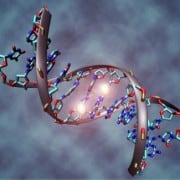Dr. Abram Hoffer on Nutritional Approaches to ADHD
Dr Hoffer, a renowned nutritional expert, served as an advisory board member for ACN Latitudes until his passing in 2009 at the age of 92. This advice is adapted with his permission from Hoffer’s Laws of Natural Nutrition. These are general recommendations and should not be taken as specific advice for any one individual.
1 First, eliminate as much junk food as possible. The simplest way is to use the no sugar law. Processed foods usually contain a number of additives with the sugar. By eliminating this major one, most of the other areas are also eliminated. It is an easy rule for both the children and their parents. It is simple to advise, much more difficult to achieve.
2 Experiment with the elimination diet. The allergy history of the child and the response to foods will help to determine whether there are any food allergies. The allergy is usually towards dairy products because this is a staple food. It is more frequent in bottle-fed infants. The usual history includes colic, other digestive problems, frequent colds, earaches (often requiring tubes), rashes, itches, and later when these have subsided, hyperactivity and learning disability…. The final test is to place the child on a diet without these suspected foods for at least two weeks, sometimes four, and then to reintroduce them. If there was no allergy, there will be no impact on their behavior. If the child is allergic, their behavior will be better at the end of the test and will become worse when the same foods are eaten again.
3 When the child is very reluctant to follow any dietary changes, as many are, I will explain the value of good nutrition and invite the child to run an experiment. If they agree to follow the recommended diet very carefully for five days during the week, they can have all the junk they want on Saturdays. I tell them this is “junk” Saturday and that I want to find out if it makes them sick. They will use Sunday to get over the reaction and then on Monday will be back on the diet. Most of the children will agree to this most of the time. After they have been made ill several times, they understand the reason for the diet. Some will not and it will then require more careful persuasion from the parents to help them with the diet.
4 I also recommend vitamin and mineral supplements to the diet. I prefer to start with vitamin B3 in nicotinamide form because it is less difficult for the young patient. They can tolerate the nicotinic acid flush fairly well but the flushing can annoy them, making them uncomfortable at the beginning and creating difficulty in following the program. The starting dose is 500mg after each meal, but it may later be increased to 1 gram after each meal. It is seldom possible to go higher without running into nausea and vomiting, which must not be allowed. If the child cannot tolerate the nicotinamide, it is changed to nicotinic acid. The child and parents must be advised about the flush reaction and that it will go away in time if the vitamin is taken regularly. [For a thorough discussion on the flush and determining optimal doses, please refer to the full text. -Ed.]
5 If there is evidence of a B6 dependency [an increased need above normal requirements], I add this to the program, usually 250mg daily. It is best combined with zinc, about 15 to 30mg daily. It is particularly important for children who are autistic. Magnesium should also be given.
6 Every child must have enough ascorbic acid [vitamin C] . I give them between 1.5g and 3.Og daily. It is a good anti-stress nutrient and decreases the frequency of colds and the flu. B-complex preparations provide extra amounts of all the B-vitamins.
7 Perhaps ten percent of my patients have needed a drug to help control their behavior and hyperactivity. I have found imipramine very effective, using 25mg at night, rarely going up to 75mg. This antidepressant is withdrawn as soon as possible. It is a good idea to take them off this drug every summer as a test, and if their behavior remains controlled when they go back to school not to restart it.
The child remains on this program until he is well and then for many years. It is best to keep such children on it until they are 18. However, at any time the parents may stop the program as a test, and if there is no relapse, not resume the regimen. If the child begins to relapse, they will restart the treatment.









